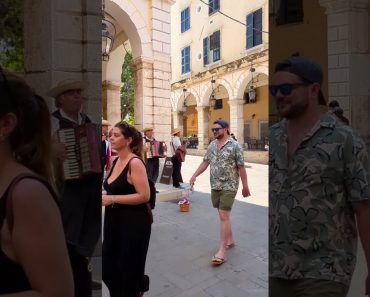In a gesture of homage to the visionary composer who dared, in the postwar years, to fuse classical music with Greek folk tradition and bring popular song to the forefront, the Ministry of Culture has declared 2026 a commemorative year dedicated to Manos Hadjidakis.
The ministry’s decision honors Hadjidakis’s enduring legacy—a body of work marked by intellect, emotion, and deep devotion to Greece and its culture. Through his teaching, counsel, and principled engagement, he championed education, freedom, and humanistic values against vulgar populism. Over three decades after his passing, his music continues to inspire and resonate with audiences.
Minister of Culture Lina Mendoni noted that Hadjidakis, as both artist and thinker, redefined musical creation while advancing liberal thought through his writings and public discourse.
For the 2026 commemorative year, the Ministry of Culture and its affiliated institutions plan a comprehensive program to revive and reexamine Hadjidakis’s artistic and cultural legacy. The aim is to reintroduce his music and ideas to younger generations, inviting them to explore the depth of his influence on art and the modern Greek spirit.
Musical Legacy of Manos Hadjidakis
Manos Hadjidakis, was born on Oct. 23, 1925, in Xanthi, Thrace. Following his parents’ separation in1932, he moved with his mother and sister to Athens, where his remarkable journey began.
Hadjidakis made his debut in 1944 with The Last White Crow at Karolos Koun’s Art Theatre, launching a 15-year collaboration that produced iconic scores for stage classics such as The Glass Menagerie (1946), Antigone (1947), Blood Wedding (1948), and Death of a Salesman (1949). From 1950 onward, he composed music for ancient Greek tragedies and comedies.
In 1959, he introduced composer Mikis Theodorakis to the Athenian public, orchestrating and recording Epitaphios with Nana Mouskouri. The following year, Hadjidakis won the Academy Award for “Never on Sunday,” a song that became one of the most celebrated of the 20th century.
During his U.S. years (1966–1972), he worked on the Broadway musical Illya Darling with Jules Dassin and Melina Mercouri and absorbed the influence of pop music, resulting in the album Reflections with the New York Rock and Roll Ensemble.
Returning to Greece in 1972, he founded the music café-theatre Polytropon and later transformed Greece’s Third Program radio into a cultural beacon (1975–1981). In 1989, he created the Orchestra of Colors, dedicated to innovative repertoires.
A visionary until his final days, Manos Hadjidakis passed away on June 15, 1994, leaving behind a timeless musical legacy.







